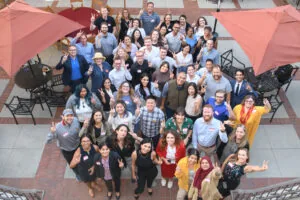Description
U.S.-China relations have been continually redefined over recent decades, but these periodic transformations are only the latest version of a centuries-long learning process that has involved countless cultures from around the globe.
Today, as trade relations between the countries expand due to improved technology and infrastructure, political tensions are on a rise. The authoritarian regime in China, news of internment camps and reports of intellectual property theft have been condemned by Western countries.
In this seminar, experts discuss the Silk Roads and how they changed China’s outlook and relationship with European nations. They also question, how did the biggest Chinese empire transform trade between nations? How did China’s historic leadership build its vast network of trade? What does the future of trade look like for China and other nations?
The panel features Peter Frankopan, professor of global history at Oxford University and associate director of the Programme for Silk Roads Studies at King’s College, Cambridge; Valerie Hansen, professor of Chinese and world history at Yale University and author of The Silk Roads: A New History; David C. Kang, Maria Crutcher professor in international relations, business and East Asian languages and cultures at USC and director of the USC Korean Studies Institute; Michael D. Swaine, director of the East Asia Program at Quincy Institute for Responsible Statecraft.
The panel is moderated by Mike Murphy, USC Center for the Political Future co-director and NBC political analyst with welcome remarks from from Jay Rubenstein, director of the USC Center for the Premodern World and professor of history.
Who Will Benefit
– Policymakers looking to understand how to address the inevitable rise of China
– History enthusiasts who want to dig deeper into the rise of Chinese trade from the Silk Roads to today
– Political science students hoping to gain more insights into the future of trade amidst privacy and intellectual property issues in China
About Our Featured Faculty
Mike Murphy is the co-director of the USC Center for the Political Future. Murphy is one of the Republican Party’s most successful political media consultants, having handled strategy and advertising for more than 26 successful gubernatorial and senatorial campaigns. His record in helping Republicans win Democratic states is unmatched by any other GOP consultant. Murphy has been called a “media master” by Fortune magazine, the GOP’s “hottest media consultant” by Newsweek, and the leader of a “new breed” of campaign consultants by Congressional Quarterly. He is a widely known political pundit, appearing frequently on NBC, CNN and NPR. Previously, he served as a regular on the Meet the Press political roundtable and wrote the “Murphy’s Law” column for TIME Magazine.
Jay Rubenstein is the professor of history at USC Dornsife College of Letters, Arts and Sciences. Rubenstein studies the cultural and intellectual history of the High Middle Ages, with emphases on the Crusades, monasticism, biblical exegesis and prophetic thought. In addition to teaching in the history department, he is the director of the USC Center for the Premodern World. He was felicitated with MacArthur Fellow, 2008-2012.




